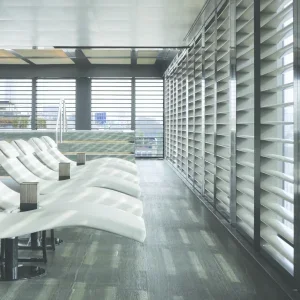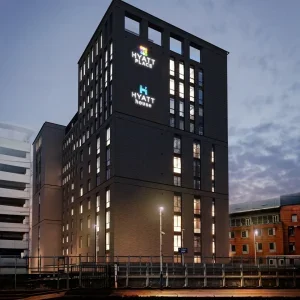 Hoteliers can recognize high-quality service a mile away — they spend all day delivering it to guests, after all. With technology playing a greater role in hotel operations, finding a reliable partner for your hotel’s property-management system is crucial. With so many features and offerings in play these days, from the way data is handled to the growing list of integrations taking place across the industry, finding your ideal PMS partner is easier said than done.
Hoteliers can recognize high-quality service a mile away — they spend all day delivering it to guests, after all. With technology playing a greater role in hotel operations, finding a reliable partner for your hotel’s property-management system is crucial. With so many features and offerings in play these days, from the way data is handled to the growing list of integrations taking place across the industry, finding your ideal PMS partner is easier said than done.
The first step in finding the right product is finding a PMS that fits the hotel environment. This includes a system that has the feature set and security necessary to run your business effectively. This is a natural part of the PMS selection process, but identifying your hotel’s needs early on can help operators avoid substantial headaches should they realize their PMS provider of choice is lacking certain necessary functions when it is too late. To help narrow the scope of PMS partners based on feature sets and other key factors, hotels should closely examine their needs, such as if they require a cloud-hosted environment or a browser-based option for self-hosting their property management system. Also examine the culture of the partner being considered. Is there direct access to all levels from front line support to executive management?
Additionally, an effective PMS is always evolving. Hoteliers should ask potential partners about recent updates to their platform and ascertain the depth of the vendor’s product line to facilitate the entire operation, whether as an all in one solution or well-integrated to other systems on property. The frequency of updates provided to a PMS is indicative of its ongoing security focus, the number of available third-party integrations, and the vendor’s ability to quickly address new industry and client demands or issues as they arise.
Not every PMS provider serves every market, and bigger is not always better. Some providers specialize in serving limited-service hotels, whereas others target larger more complex environments with the software capabilities suitable to that market. Some further specialize in a specific market such as independent properties or boutique hotel groups. When a hotel or resort has done a comprehensive evaluation of its technology needs, PMS providers can successfully collaborate with them in the discovery process to provide the appropriate information and solutions and level of service they require.
Ongoing Support
No technology product in the marketplace is perfect, and since PMS technology is constantly evolving and innovating, hotels must seek out partners who provide support on a level that fits their operational needs. Support comes in many forms, from responsive action in resolving bugs to assisting hotel partners with needs that arise during daily operations. In any situation, hotels require access to a technology partner capable of working and communicating with them on their own terms.
Hotels and resorts can approach the challenge of finding an organization with the level of support they need by first exploring the available channels of communication offered as standard services. This comes typically in the form of 24/7 phone support, preferably by a help desk that has regular access to developers so the knowledge base is directly within the core teams; in-app live chat offerings to obtain support in a way that your staff will appreciate; self-serve e-learning tools, and then of course on-site in-person services when needed.
If your hotel is attempting an ambitious upgrade to its technology, it will be helpful to choose a PMS partner with the capability to provide a breadth of onboarding and management services for consistent one-on-one support throughout the implementation phases. Conversely, a more established property group with a robust in-house IT department may benefit from a more liberal and hands-off approach, necessitating a different partnership arrangement as a result.
One of the best things hoteliers can do when choosing any technology is asking prospective partners for references. Talking to other hoteliers is invaluable during this stage, as it creates an opportunity to ask pointed questions about a technology platform’s strengths and shortcomings, and where they would like to see improvements. These inquiries can expose questions about a technology partner’s overall capabilities, and if they are a fit for your hotel group.
Continuing Education
As the saying goes, prevention is better than the cure. It’s nice for a technology partner to provide availability in times of crisis, but it’s even better if they can continuously prepare hotel staff to be educated and self-serve, by providing high-quality education and online training tools as well as on demand live training help. Free and accessible self-serve education, paired with additional instructor led and live chat training as necessary, can mean the difference when preparing hotel partners for the digital era we are currently living in.
Another way technology partners can provide educational and productivity support is through internal system audits. By having a management service team look over your hotel’s PMS configuration and internal processes, it is possible to find ways to streamline operations and optimize your PMS to make better use of the available features and capabilities that may not have been considered or relevant when originally implemented.
Hotels should examine potential PMS partners not only for their breadth and depth of educational materials, but for how available and accessible those materials are. Can they be viewed on a browser, or through a digital app and from within the PMS application for instant access? What is the protocol for requesting hands-on assistance if necessary? What tools are available to assist with onboarding new talent? The answers to these questions will lay the groundwork for your hotel’s educational processes going forward.
Due Diligence
While it is a PMS partner’s job to deliver on their capabilities, it falls to hoteliers to choose a partner that pairs well with their property group and culture. While many PMS providers have reached parity when it comes to their primary offerings, the delivery system behind their technology and their finer capabilities often vary widely. In this case, the devil is certainly in the details.
To hammer out these details, hoteliers should engage all department heads in discussions regarding PMS capabilities. Nuance and context are necessary when choosing the technology that will drive your operations, and no department wants to be left out of the discussion when choosing central feature sets.
Keeping top of mind should always be the continuous understanding of what the business’ ultimate goals are from the top and the driving factors behind those goals. It’s easy to get caught up in shiny objects, but not losing sight of the main objectives and the purpose of the evaluation in the first place is key.
Comfort level is important when it comes to using sophisticated tools such as these, and the service that comes with them will make or break your success in using them. Hoteliers who do their homework on potential partners can avoid surprises and ultimately maximize delivering their own service going forward.






